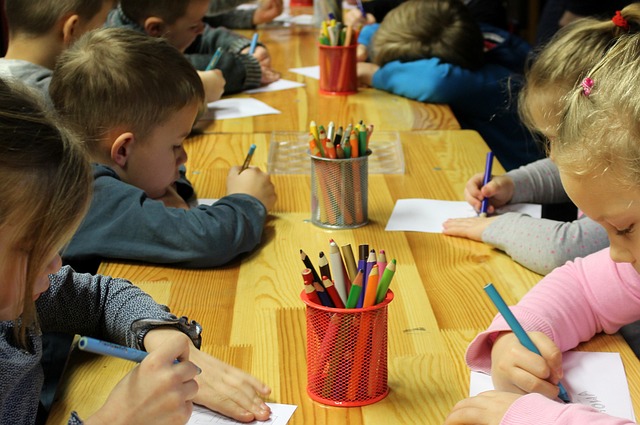Early childhood education plays a vital role in shaping a child’s future. During the formative years, children undergo significant cognitive, emotional, and social development. Investing in early childhood education is crucial as it sets the stage for a strong foundation, supporting academic success and overall well-being. In this blog post, we will explore the importance of early childhood education in building a solid educational groundwork.
Development of Cognitive Skills:

Early childhood education provides a nurturing environment for children to develop essential cognitive skills. During these critical years, children’s brains are highly receptive to learning new concepts and skills. Well-designed early childhood programs offer age-appropriate activities that stimulate various areas of development, including language, problem-solving, creativity, and critical thinking. By engaging in these activities, children develop a love for learning and build a solid foundation in areas such as literacy, numeracy, and scientific inquiry.
Social and Emotional Development:

Early childhood is a crucial period for the development of social and emotional skills. Interacting with peers and adults in a structured setting helps children learn important social norms, cooperation, empathy, and emotional regulation. Early childhood education programs incorporate opportunities for children to engage in collaborative play, sharing, conflict resolution, and communication. These experiences lay the groundwork for positive social relationships, self-confidence, and resilience, which are vital for success not only in school but also in later stages of life.
School Readiness:
Participating in early childhood education programs improves a child’s readiness for formal schooling. Structured routines, exposure to new ideas and concepts, and engaging activities help children adapt to classroom settings, follow instructions, and develop a sense of responsibility. In addition, early childhood education promotes the development of fine and gross motor skills, which are essential for tasks such as writing, drawing, and physical fitness activities. By easing the transition into primary school, early childhood education fosters a positive attitude towards learning and sets the stage for future academic success.

Lifelong Learning and Long-Term Benefits:
Instilling a love for learning at a young age is an invaluable gift. Early childhood education focuses not only on imparting knowledge but also on developing a passion for continuous learning. By fostering curiosity, critical thinking, and problem-solving skills, early childhood education creates a solid foundation for lifelong learning. Children who have access to early childhood education have higher chances of educational attainment, increased employment opportunities, and better overall health outcomes. Research consistently demonstrates the long-term benefits of early childhood education, including higher academic achievement, greater socioeconomic stability, and reduced risk of involvement in criminal activities.


Early childhood education lays the cornerstone for a child’s future success. By focusing on cognitive, social, and emotional development, early childhood education programs provide the necessary groundwork for lifelong learning, school readiness, and long-term benefits. Investing in early childhood education is an investment in the future of our children, society, and overall well-being. It is an investment that yields immeasurable returns, shaping the lives of children and society as a whole.

